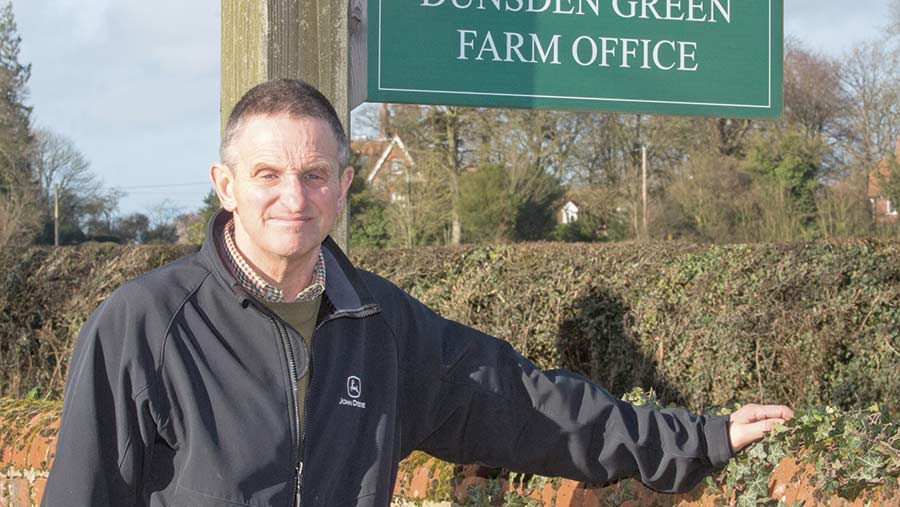Farmer Focus: Visiting a New Zealand lupin grower
 ©Tim Scrivener
©Tim Scrivener We hadn’t got very far on our 6,000km road trip around New Zealand when I wrote my piece last month. Back now to the cold UK, it’s time to update you with the farming highlights of the rest of our trip.
The hot, dry conditions of central South Island were not shared by the rest of New Zealand.
There had been unseasonable weather in the north of South Island and parts of North Island.
See also: Linseed offers a double spring break crop option
Ed White, who farms with his family in the Hawkes Bay area of North Island and is an avid reader of Farmers Weekly, very kindly agreed to put us up for a couple of nights.
The family farm consists of 1400 dairy cattle, 850ha of arable and a lamb fattening enterprise.
Break crops
They were having a difficult harvest thanks to a period of wet and thundery weather. It was much like harvest 2017 for us, with laid crops and very late flushes of weeds in ripe crops.
Thankfully, we brought the good weather we had enjoyed elsewhere with us and on the second day the combine was back out harvesting again.
Ed was growing similar crops to us, with wheat and barley his main enterprise. Just like me, he is also looking for the silver bullet in terms of a break crop.
Only very small areas of oilseed rape seem to be grown in New Zealand and are a definite no in Ed’s area because of the propensity for thunder storms at harvest.
This year he was trying lupins for the first time and had been looking at the impact of modifying the time of drilling.
We had some very interesting conversations with Ed and his family about farming in both New Zealand and the UK, surprisingly with not much discussion about Brexit.
Although up until now farmers down under have had a much more relaxed set of regulations to work with, this is now all changing with the new government.
It seems the image of green and clean production is being challenged quite hard by the environmental lobby, which until recently has not impacted on farming. So, Mr Gove, we are all going to be competing for the quality market.
Simon Beddows manages 1,000ha of arable land at Dunsden Green, south Oxfordshire. Cropping is cereals, oilseed rape, beans and forage maize.

